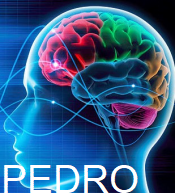QUESTIONAIRE

PHYSICIAN SUMMARY – KEY FINDINGS
Normal response time to visual and cognitive stimuli. No The normal level of focus and cognitive processing capacity. Impulsivity or poor visual discrimination. Responding to a stimulus incorrectly (commission errors) can occur as a result of impulsivity but also from poor visual discrimination. Possible signs of Questionable Comprehension of Task; Possible signs of Concussion / Brain Injury;
Delayed P3b latency under go-nogo condition. Reduced neuronal capacity associated with cognition, information processing, and working memory.
Low working memory scores reflect an inability to categorize stimuli, problems with information processing, parietal lobe dysfunction, inattention, lack of focus, cognitive decline, and concussion/brain injury. Possible signs of Cognitive Decline Due to Aging; Possible signs of Working Memory Deficiency; Possible signs of Parietal Lobe Dysfunction; Possible signs of Temporal Lobe Dysfunction;

Advanced Instruments

Laboratory Specialists

Neurological Analysis
Submitting Private Laboratory Analytical Reports
Grey Matter Group – Scheduling and Future Integrations

25+ Years Of Experience
The ‘Alpha Arrest Reaction (ARR)’ was not clearly present at occipital electrode sites. This is caused by an absence of dominant Alpha activity during the Eyes Closed condition and the presence of dominant Alpha activity during the Eyes Open condition.
The absence of a clear ARR can be related to impaired vigilance regulation: The patient is either hypo- aroused, resulting in abnormally high Alpha power during the Eyes Open condition, or the patient is hyper – aroused.
Alpha right hemispheric dominance.
Possible signs of Dementia (2 of 5); Possible signs of Impaired Memory Symptoms (2 of 5);
KEY FINDINGS
SELF-ASSESMENT QUESTIONAIRE SECTION
- Low Motivation: 5 of 5
- Dizziness/vertigo/imbalance: 4 of 5
- Insensitive to Other’s Feelings: 4 of 5
- Difficulty following directions: 4 of 5
- Nightmares/Bad dreams: 4 of 5
- Failure to Initiate Actions: 4 of 5
- Depression (Sad & Blue): 4 of 5
- Attention-Difficulty Multi-Tasking: 4 of 5
- Hyperactive and/or Agitation: 4 of 5
- Mood-Lack of Enjoyment in Most Daily Activities: 4 of 5
- Self-Esteem Problems: 4 of 5
- Difficulty Comprehending Social Cues: 4 of 5
- Attention-Re-Experiences Intrusive Memories: 4 of 5
- PTSD-Excessive Sleep-Lethargic: 4 of 5
- Do things that result in isolation or distancing
from others: 4 of 5 - Don’t fall asleep or stay asleep at night: 4 of 5

Your Full-Service Lab for Clinical Trials
The NeuralScan aids in the assessment of both the Central Nervous Systems (CNS) and Autonomic Nervous Systems (ANS). The function of the CNS is determined through EEG activity, while the ANS is objectively assessed simultaneously through the ECG.
